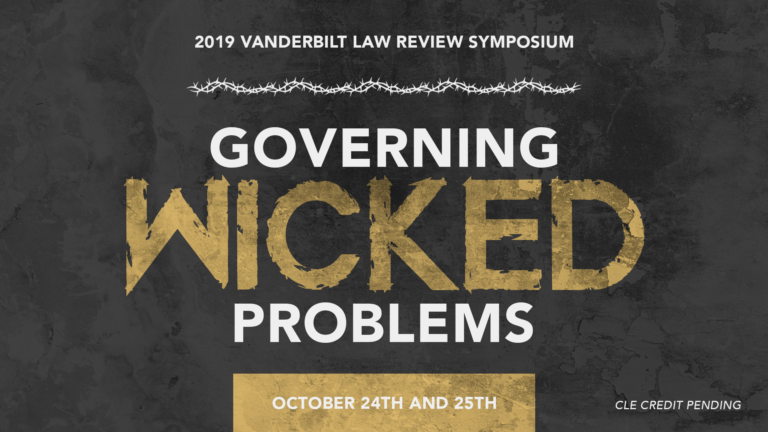
Gary Marchant recently spoke at the Vanderbilt Law Review’s Symposium for Governing Wicked Problems last Friday. Vanderbilt Law Review defines wicked problems as the “opposite of hard but ordinary problems,” problems that can be solved by public and private governance institutions in a finite time period by applying standard techniques. Conventional governance processes fail to take on wicked problems, considering they may exacerbate situations by creating unwanted outcomes.
This symposium is designed to step back and look into whether there are general governance design principles that could prove to be helpful with wicked problems.
Thought leaders from a variety of fields were invited to write about substantive wicked problems and governance strategies to address problems. The symposium focus is not to run through each problem and its specific challenges, as well as considering governance strategies in the abstract, but instead focusing on the specific and the abstract. This symposium instead focuses on what generalizable insights have been learned to help design public and private governance regimes to manage wicked problems.
Marchant was part of a group of nine speakers invited to this event, where he discussed evolving technologies on a panel with Yesha Yadav, who discussed financial system technologies.















